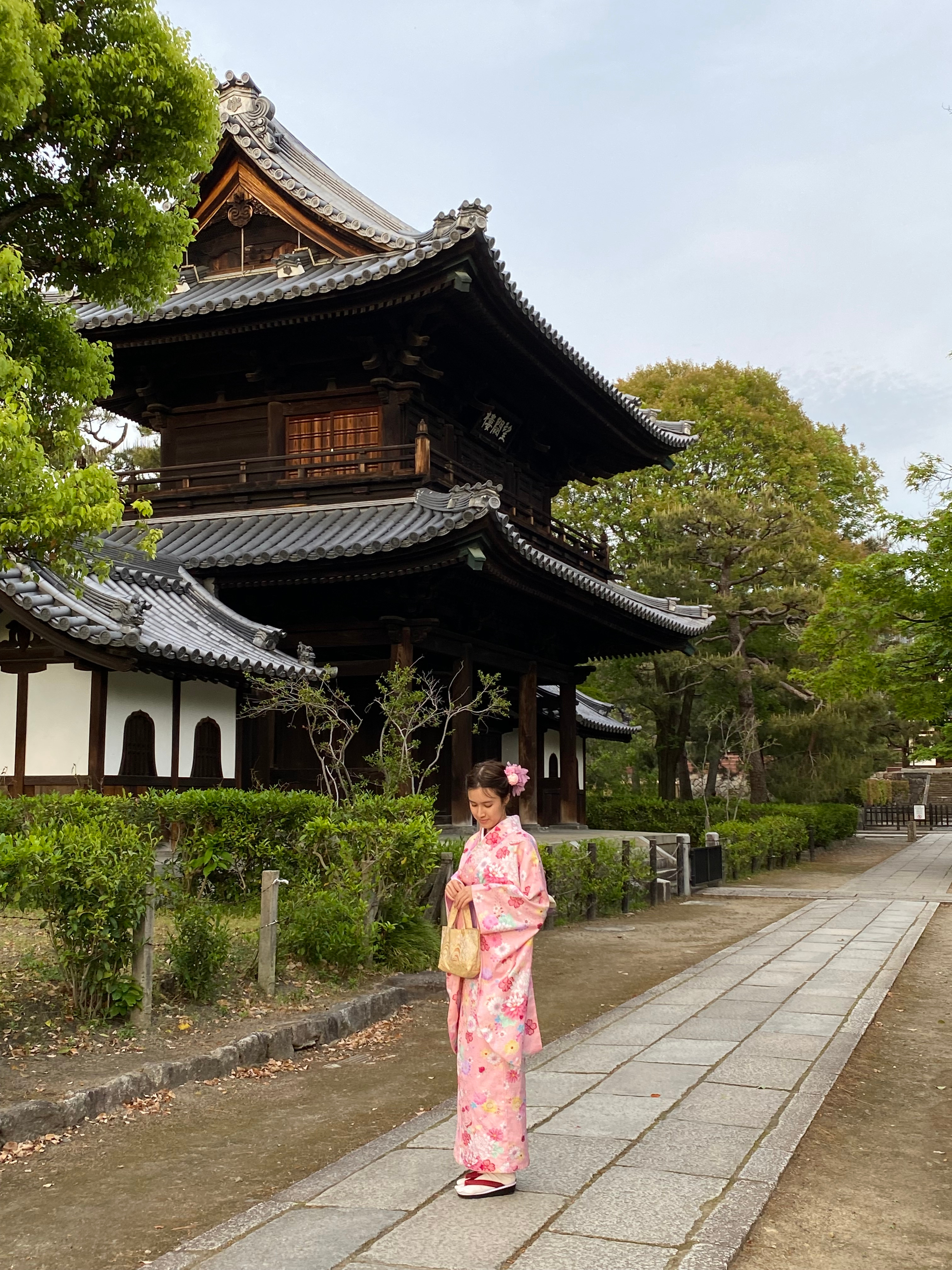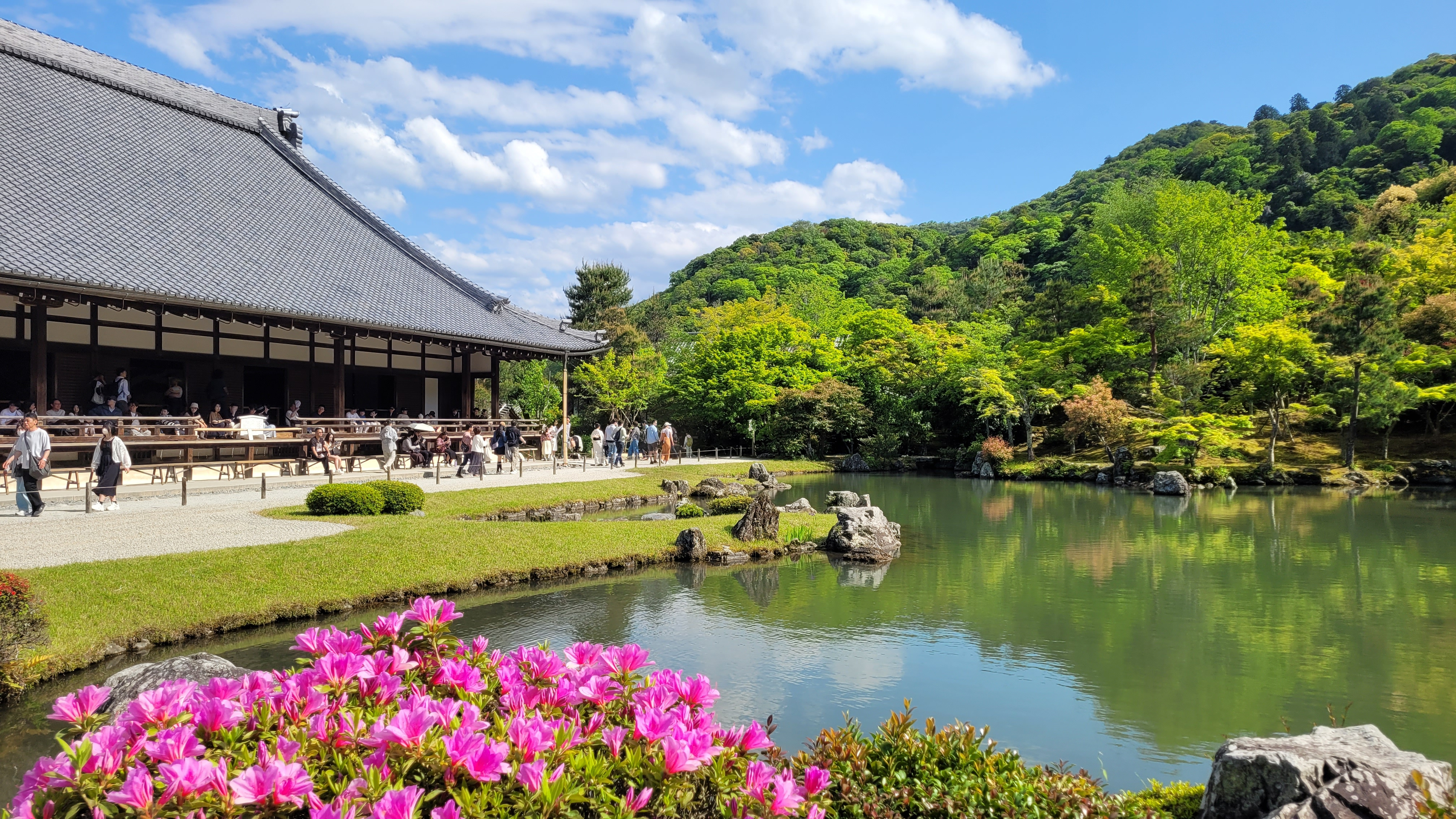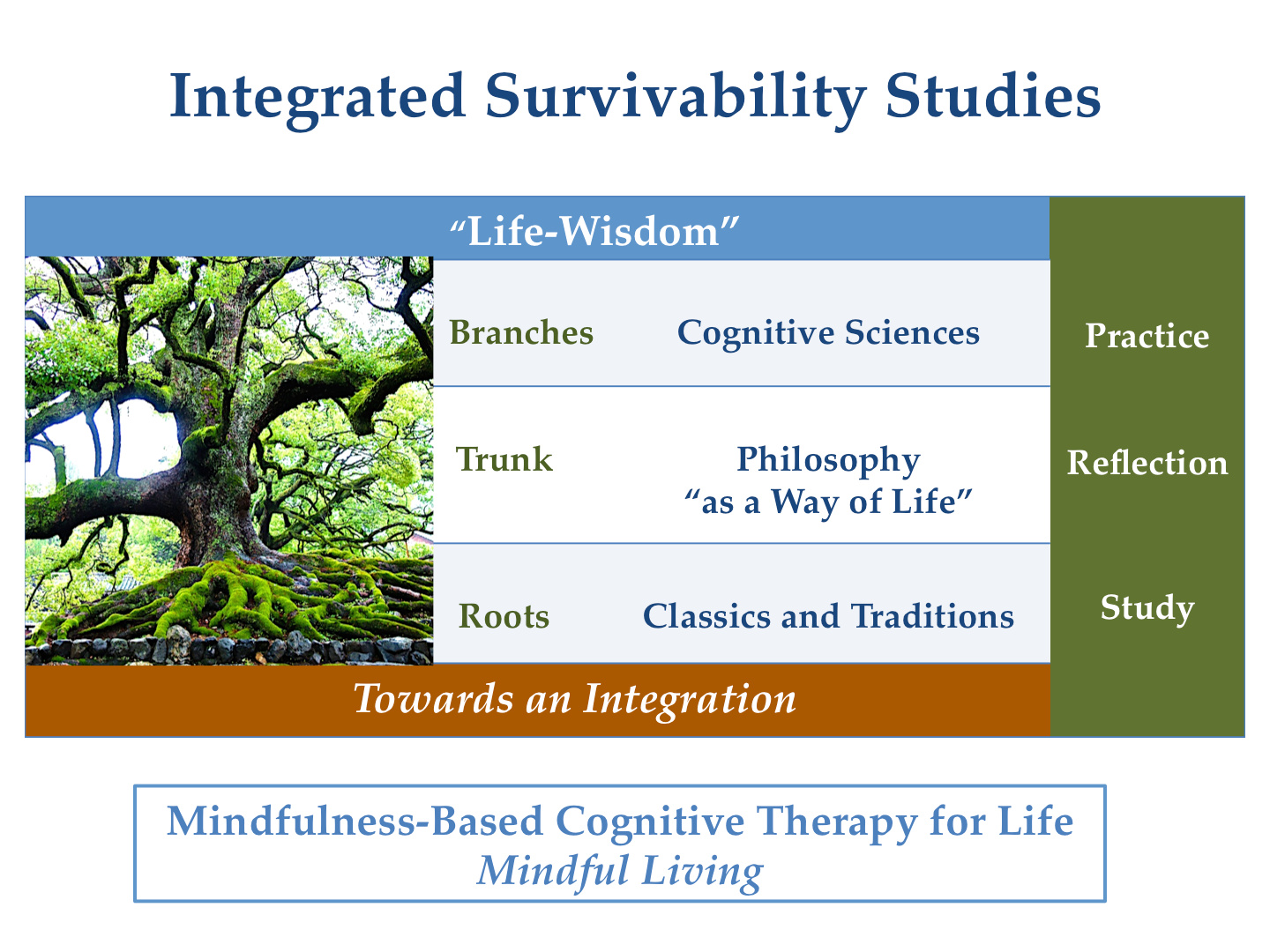Week 1 LiA Log: Orienting to Kyoto with Open Awareness
As a mindfulness researcher, I am excited to be embarking on a journey to develop in this field over the Summer with Kyoto University's Mindful Living Research Group. Incorporating the findings of my first summer’s Laidlaw research, I will be leading the development and delivery of a nature-based mindfulness retreat for English-speaking graduate students at Kyoto. At the same time, I will be deepening my personal mindfulness practice and ethical leadership capabilities by exploring diverse approaches to mindful leadership from Mindfulness-based Cognitive Therapy for Life to Kyoto’s cultural traditions.
My experiences this week...
Just before I arrived in Japan – I found out that the dates of my arrival coincided with a national holiday: Golden Week. This meant the university was closed until May 7. So, since my Philosophy of Mindfulness class was cancelled during Golden Week, I took the opportunity to learn more about Japanese Culture by visiting historical sites instead. There were bustling crowds everywhere I went, but I enjoyed the liveliness of being surrounded by local and international tourists. I visited the original site of the Hojuji Palace and Kyoto National Museum – where I learnt about international influences on Japanese culture and history record-keeping, and Arashiyama Bamboo Forest where I was inspired by how Japanese gardens naturally evoked a state of mindfulness.


On May 7, I had my first meeting with my supervisor, Professor Marc-Henri Deroche and members from the Mindful Living Research Group. We discussed the coming plans for the 5-weeks that I would be in Kyoto such as confirming dates of upcoming research group meetings, special events, and of course the date of the mindfulness retreat we would be hosting.
Over the next few days, I completed the recruitment poster and sign-up form and presented my work to the research group. I also had an insightful time learning more about academic studies at Kyoto University at their Open Day!
What could have been done differently?
One challenge was arriving and finding out that due to administrative reasons, I would not be able to access University Wifi and Facilities. I found out upon arriving at the university that the administrative processes required for registering me for access was quite complicated and would take a few weeks. So my supervisor suggested we explore other alternatives as I was still permitted to fully participate in our research group meetings and events. I found myself readily adapting to the situation by using my phone’s mobile data plan to allow myself to participate in the research group’s hybrid Zoom meeting and doing work off-campus at my accommodation (hotel) or in nearby cafes with Wifi.
During my first week, I enjoyed my stay at a traditionally designed hotel, where bedding involved sleeping on Japanese-style futons laid out on the tatami floor. Although since my room and hotel did not have access to a desk, I found it challenging to complete work from home. So I decided to adjust my accommodation booking and change hotels the next week so that I could have access to both a desk and Wifi.
What did I learn about myself when working with others?
In the past, my supervisors have encouraged a more self-directed approach whereas my LiA supervisor preferred a more directed and guided approach to tasks. This was really insightful in realizing that while I had known that I was creative, I noticed that I had a tendency to follow my gut-feeling to instinctively decide how to work on and complete tasks. This week, I learnt to take a more mindful, reflective, and contemplative approach to tasks before and during tasks rather than only after tasks have been complete.
What did I learn about leadership?
My supervisor, Professor Marc-Henri Deroche leads the Kyoto Mindful Leadership Programme held in collaboration between Kyoto University and the Oxford Mindfulness Centre. So, I was incredibly grateful to start learning about mindful approaches to ethical leadership and hear that I would be learning parts of the content of this programme through my LiA experience.
Something that stuck with me was about how the role of mindful facilitators who work with leaders was not necessarily to take the lead themselves but to act as a mirror, to encourage reflection and awareness for skillful responding. This really resonated with me as I think often, we try to anchor ourselves in the spotlight, but it’s sometimes taking a step back, seeing the big picture and allowing yourself to take a supportive role that allows you to ethically act without bias or self-motives for the greater good.
What do I want to focus on next?
Personally, I am patiently working on deepening my mindfulness practice, both as a formal practice but also informally of embracing mindfulness as a way of living. At the same time, I am also continuing to learn about Japan and Kyoto’s culture, philosophy, and history. In contrast with psychology and the cognitive sciences which are considered the ‘branches’, philosophy and cultural traditions are considered the ‘trunk’ and ‘roots’ of integrating mindfulness as a way of living. So I hope that further reflection and study of mindfulness will help me deepen my mindfulness practice and teach me more about traditional Eastern approaches to contemplation, meditation, and mindfulness and how I can better engage in such practices.

Next week, I am also hoping to further develop the outline of the mindfulness retreat in preparation for the event, and slides for an upcoming presentation at the Graduate School’s monthly research meeting.
Will be posting weekly updates about my LiA Experience here and regular updates about working in Kyoto on my social media. So stay tuned to learn how I develop both my LiA Project, and integrate mindfulness into daily living and for ethical leadership!



Please sign in
If you are a registered user on Laidlaw Scholars Network, please sign in